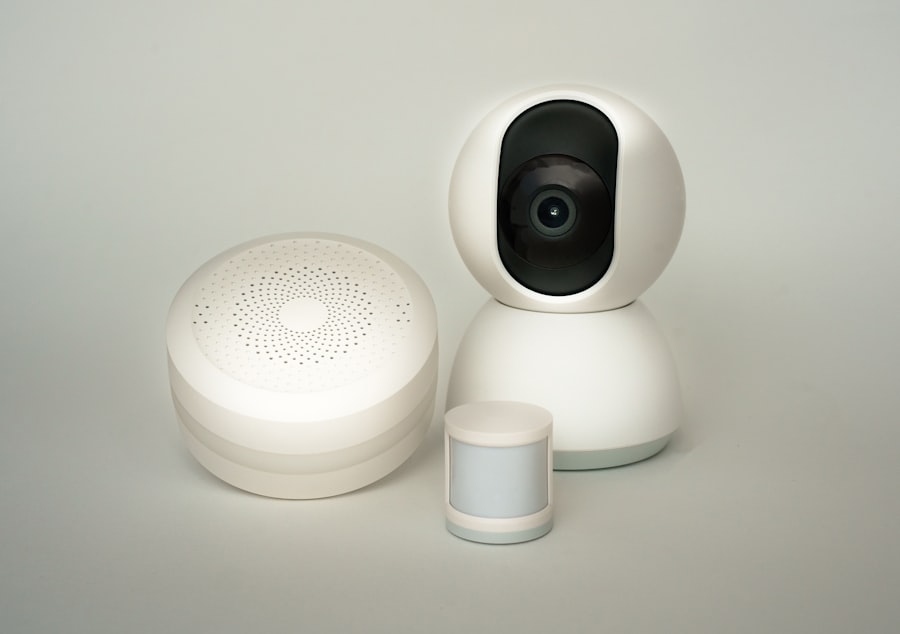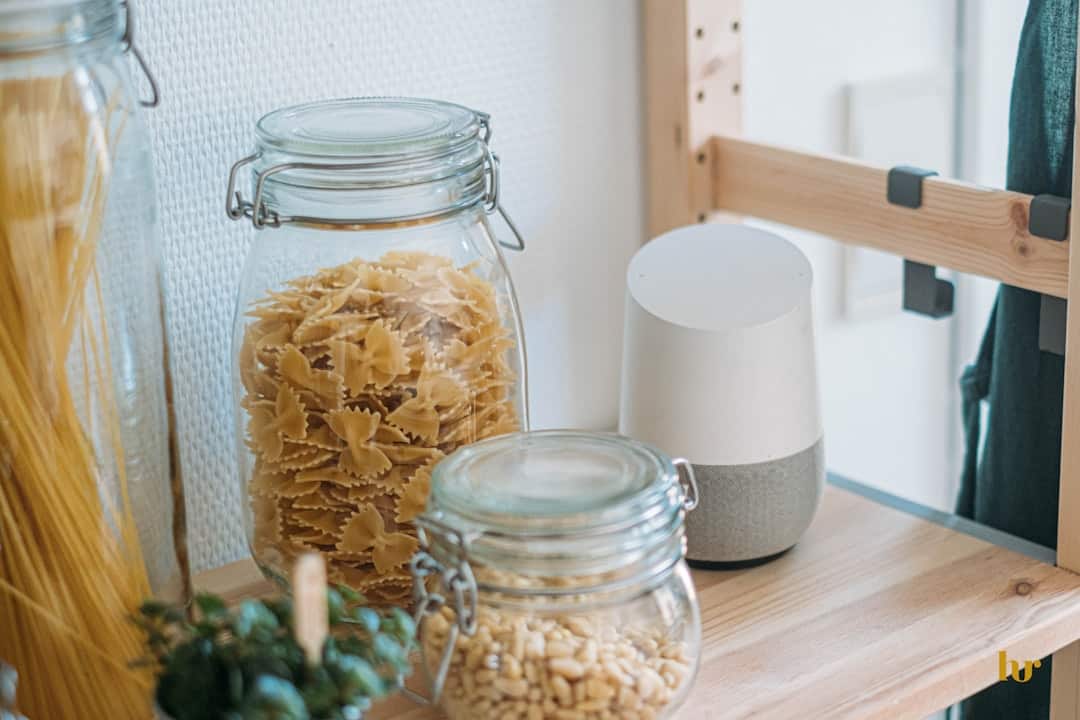In recent years, the landscape of technology has been dramatically transformed by the advent of artificial intelligence (AI), particularly in the realm of personal assistance. AI-powered personal assistants, such as Amazon’s Alexa, Google Assistant, and Apple’s Siri, have become ubiquitous in many households, serving as the digital companions that help streamline daily tasks and enhance overall convenience. These intelligent systems leverage advanced algorithms and machine learning capabilities to understand and respond to user commands, making them invaluable tools for managing everything from scheduling appointments to controlling smart home devices.
As they continue to evolve, these assistants are not only reshaping how we interact with technology but also redefining our expectations of what a personal assistant can achieve. The rise of AI-powered personal assistants marks a significant shift in the way we approach home automation and personal management. No longer confined to simple voice commands or basic functionalities, these systems are now capable of learning from user behavior, adapting to individual preferences, and even anticipating needs before they arise.
This evolution has sparked a growing interest in the potential applications of AI in everyday life, prompting homeowners to explore how these digital aides can enhance their living environments. As we delve deeper into the role of AI-powered personal assistants in home automation, it becomes clear that their integration into our daily routines is not merely a trend but a fundamental change in how we interact with our homes and the technology within them.
Key Takeaways
- AI-powered personal assistants are becoming increasingly popular in home automation, providing convenience and efficiency for homeowners.
- These assistants play a crucial role in controlling and managing smart home devices, such as thermostats, lights, and security systems.
- Homeowners can benefit from AI-powered personal assistants by saving time, energy, and money, and by enjoying a more streamlined and connected home environment.
- The integration of AI-powered personal assistants with smart home devices allows for seamless control and automation of various household tasks.
- While AI-powered personal assistants offer numerous benefits, there are also privacy and security concerns that homeowners should be aware of and address when using these devices.
The Role of AI-Powered Personal Assistants in Home Automation
The Role of AI-Powered Personal Assistants in Home Automation
AI-powered personal assistants play a crucial role in the rapidly evolving field of home automation. They act as the central hub, facilitating seamless communication and operation among various smart devices. By leveraging voice recognition and natural language processing, these assistants enable users to control a wide range of connected devices using simple voice commands. For instance, homeowners can adjust their thermostats, turn on lights, or lock doors without needing to physically interact with each device.
Enhancing Convenience and Intuitive Interaction
This seamless integration not only enhances convenience but also fosters a more intuitive relationship between users and their technology. As a result, the once cumbersome task of managing multiple devices has been transformed into a fluid experience that can be tailored to individual lifestyles. Moreover, the capabilities of AI-powered personal assistants extend beyond mere control of smart devices; they also facilitate automation routines that can significantly improve energy efficiency and security within the home.
Automation Routines and Sustainable Living
For example, users can program their assistants to execute specific tasks at predetermined times or in response to certain triggers. A homeowner might set their assistant to lower the blinds and dim the lights at sunset or activate security cameras when they leave for work. These automated routines not only save time but also contribute to a more sustainable lifestyle by optimizing energy consumption. As AI continues to advance, the potential for these personal assistants to manage complex home systems will only grow, further solidifying their role as indispensable components of modern living.
Benefits of AI-Powered Personal Assistants for Homeowners

The benefits of AI-powered personal assistants for homeowners are manifold, encompassing convenience, efficiency, and enhanced quality of life. One of the most significant advantages is the ability to streamline daily tasks through voice commands and automation. Homeowners can easily manage their schedules, set reminders for important events, or even create shopping lists without lifting a finger.
This hands-free approach not only saves time but also allows individuals to focus on more meaningful activities, whether that be spending time with family or pursuing hobbies. The ease with which these assistants can integrate into daily routines makes them an attractive option for busy households looking to maximize productivity. In addition to convenience, AI-powered personal assistants contribute to improved energy management and cost savings.
By connecting with smart thermostats, lighting systems, and appliances, these assistants can help homeowners monitor and control their energy usage more effectively. For instance, an AI assistant can learn a household’s patterns and adjust heating or cooling settings accordingly, ensuring comfort while minimizing energy waste. Furthermore, by providing insights into energy consumption trends, these systems empower homeowners to make informed decisions about their usage habits.
This not only leads to lower utility bills but also promotes a more environmentally conscious lifestyle—an increasingly important consideration in today’s world.
The Integration of AI-Powered Personal Assistants with Smart Home Devices
The integration of AI-powered personal assistants with smart home devices represents a significant leap forward in creating cohesive and interconnected living environments. As more households adopt smart technology, the ability for these assistants to communicate with various devices becomes crucial for maximizing their potential. From smart speakers and security cameras to kitchen appliances and entertainment systems, AI assistants serve as the command center that orchestrates the functionality of these devices.
This interconnectedness allows for a level of customization and control that was previously unimaginable, enabling homeowners to create personalized experiences tailored to their preferences. Moreover, this integration fosters an ecosystem where devices can work together harmoniously. For example, a homeowner might set up a morning routine that involves the assistant gradually brightening the lights while playing soft music and brewing coffee—all triggered by a simple voice command or at a specific time each day.
Such scenarios illustrate how AI-powered personal assistants can enhance daily life by creating seamless interactions between devices. As manufacturers continue to develop new smart products and improve compatibility standards, the potential for even greater integration will expand, further enriching the user experience and solidifying the role of AI in home automation.
Privacy and Security Concerns with AI-Powered Personal Assistants
Despite the numerous advantages offered by AI-powered personal assistants, concerns regarding privacy and security cannot be overlooked. These devices are designed to listen for voice commands continuously, which raises questions about data collection and user consent. Many users may not fully understand how their information is being used or stored by these systems, leading to apprehension about potential breaches of privacy.
The reality is that while these assistants can provide unparalleled convenience, they also require access to sensitive data—such as location information and personal preferences—that could be exploited if not adequately protected. Furthermore, security vulnerabilities associated with smart home devices pose additional risks for homeowners relying on AI-powered personal assistants. Cybercriminals are increasingly targeting connected devices as entry points into home networks, potentially compromising not only the assistant itself but also other connected systems within the household.
Instances of unauthorized access or hacking have raised alarms about the safety of using these technologies in everyday life. As such, it is imperative for users to remain vigilant about their security practices—utilizing strong passwords, enabling two-factor authentication where available, and staying informed about software updates that address potential vulnerabilities.
The Future of AI-Powered Personal Assistants in Home Automation

Advancements in Emotional Intelligence
As advancements in artificial intelligence continue at an unprecedented pace, we can expect AI-powered personal assistants to become even more sophisticated in understanding human behavior and preferences. Future iterations may incorporate advanced emotional recognition capabilities that allow them to respond not just to commands but also to the emotional states of users—creating a more empathetic interaction model that could revolutionize how we perceive digital assistance.
Personalized Experiences and Interoperability
This evolution could lead to personalized experiences that adapt dynamically based on mood or context, further enhancing user satisfaction. Additionally, as smart home technology continues to proliferate, we may witness an increase in interoperability among various devices and platforms. The development of universal standards could pave the way for seamless communication between different brands and types of devices, allowing homeowners to create truly customized ecosystems tailored to their needs.
Towards Intelligent Environments
This interconnected future would enable AI-powered personal assistants to manage an even broader range of tasks—from coordinating complex schedules involving multiple family members to optimizing energy use across various appliances—ultimately transforming our homes into intelligent environments that anticipate our needs before we even articulate them.
Embracing the Potential of AI-Powered Personal Assistants
In conclusion, AI-powered personal assistants represent a transformative force in home automation and daily living. Their ability to streamline tasks, enhance energy efficiency, and integrate seamlessly with smart home devices has made them indispensable tools for modern homeowners seeking convenience and control over their environments. While concerns regarding privacy and security remain pertinent issues that must be addressed through responsible usage and robust safeguards, the potential benefits far outweigh these challenges when approached thoughtfully.
As we stand on the brink of further advancements in artificial intelligence and smart technology integration, it is essential for homeowners to embrace the possibilities offered by AI-powered personal assistants. By doing so, they can unlock new levels of efficiency and personalization within their homes while contributing to a more sustainable future. The journey toward fully realizing the potential of these digital companions is just beginning; as we navigate this evolving landscape together, we must remain open-minded about the opportunities that lie ahead while remaining vigilant about protecting our privacy and security in this increasingly connected world.
If you’re interested in the future of home automation and how AI-powered personal assistants are shaping our living environments, you might also find value in exploring the latest technological advancements in other areas. For instance, understanding the best apps available can enhance how you integrate technology into daily life. Check out this related article on the best apps for Facebook in 2023, which can provide insights into how apps are evolving to better serve users, potentially offering features that could integrate with or enhance your home automation systems.
FAQs
What is an AI-powered personal assistant?
An AI-powered personal assistant is a virtual assistant that uses artificial intelligence to understand and respond to user commands and requests. These assistants can perform tasks such as setting reminders, answering questions, controlling smart home devices, and more.
How do AI-powered personal assistants work in home automation?
AI-powered personal assistants work in home automation by connecting to smart home devices and controlling them based on user commands. Users can ask the assistant to turn on lights, adjust the thermostat, lock doors, and perform other tasks to automate their home.
What are the benefits of using AI-powered personal assistants for home automation?
Some benefits of using AI-powered personal assistants for home automation include convenience, energy efficiency, improved security, and the ability to control multiple devices with voice commands or a single app.
What are some popular AI-powered personal assistants for home automation?
Some popular AI-powered personal assistants for home automation include Amazon Alexa, Google Assistant, Apple Siri, and Microsoft Cortana. These assistants are compatible with a wide range of smart home devices and can be integrated into a home automation system.
What are some potential future developments for AI-powered personal assistants in home automation?
Potential future developments for AI-powered personal assistants in home automation include improved natural language processing, enhanced integration with smart home devices, personalized user experiences, and expanded capabilities for managing and automating home tasks.

